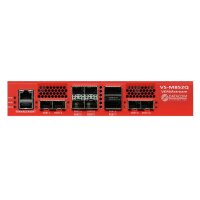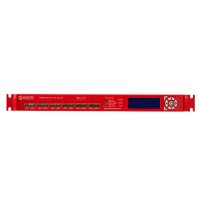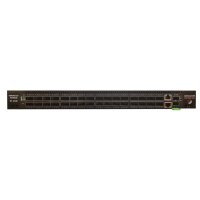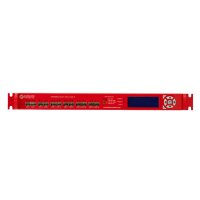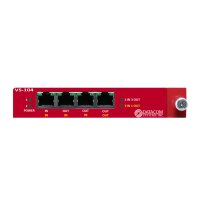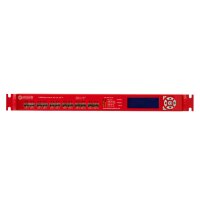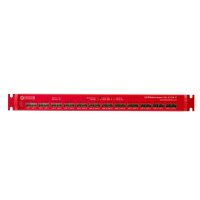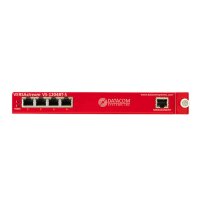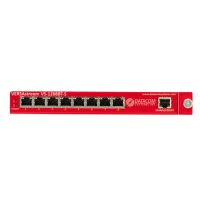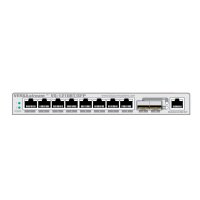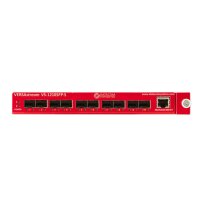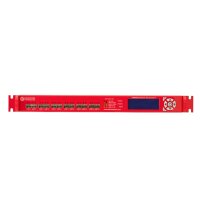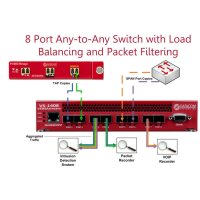Network Packet Broker
Purchase Network Packet Broker (NPB) & Data Monitoring Switch
Network Packet Broker (NPB) Datacom Systems VS-M8S2Q with 1G/10G/40G links. Take control of your network, eliminate blind spots, and reduce network downtime. This Tap Monitors 40Gsources with 10G Tools • Support up to 16 1G/1G ports in a compact unit using breakout cables • Use data filtering to minimize oversubscription risk and optimize performance of monitoring Tools.
VERSAstream VS-M32QD QSFP-DD latest-generation, high-performance NextGen High-Density Network Packet Brokers provide purpose-built solutions for data aggregation, replication, filtering and load balancing. The ultra-high performance VersaStream VS-M32QD is a Packet Broker with 32 QSFP-DD ports - no copper. All ports support up to 400G. Up to 128 ports using breakout cable. Port speed: 10G, 25G, 40G, 50G, 100G and 400G. CLI and GUI.
Full Network Visibility for Monitoring Solutions. Datacom Network Tap VS-104 - 10/100/1000BASE-TX 4 Port Network Packet Broker with dip switch controlled configuration. Network Tap Speed X - NA and Monitoring Tool Speed X - NA.
Network Packet Broker with Data Filtering/Load Balancing, 4 x 10G/1G SFP+/SFP ports, 8 x 1G SFP ports, Dual hot swappable AC pwr supplies.
What is a Network Packet Broker (NPB)?
A Network Packet Broker improves network visibility by delivering the right data to the right tool at the right time, from any point on the network.
What are the benefits of a Network Packet Broker?
Out-of-band tools used for network analysis, application performance management and intrusion detection require access to the network. Aggregation, regeneration and packet filtering solutions from Datacom Systems can provide the exact data these tools need to perform their critical functions.
A network packet broker is a purpose-built monitoring infrastructure technology that is installed between an organization's network infrastructure and its security and management tools. Packet brokers enable organizations to deploy a wide range of network tools to access, monitor and analyze network traffic across the enterprise.
Instead of monitoring each network segment with a separate tool, network packet brokers can be installed to collect traffic from multiple network connections. They can replicate, aggregate, filter and route network packets to assigned monitoring tools. In this way, organizations can not only collect and consolidate all important data, but also improve the effectiveness and performance of network monitoring and security tools by providing segmented data from across the network.
Summary of Network Packet Broker (NPB) benefits:
- Eliminate blind spots in traditional architectures, improve security, and enable analysis of all data from critical network segments
- Accelerate deployment of management, monitoring and security tools by allowing tools to be replaced or upgraded without disrupting the production network
- Future-proof the IT environment by creating a security and management abstraction layer that separates infrastructure from applications and enables rapid changes and upgrades
- NPB's optimize technology infrastructure and data center modernization by enabling organizations to better manage all their traffic
- Data deduplication, filtering and slicing reduce overall traffic volume and improve tool efficiency, which lowers operational costs and extends the life of existing infrastructure and connected tools
The NPB is a device that optimizes traffic between TAP and SPAN connections and network monitoring, security and acceleration tools. It is also called a "TAP aggregator" or "traffic aggregator." It improves the performance of network analysis and security tools, helps optimize application performance and solve network problems.
Network Packet Broker (NPB) optimizes network security and the efficiency of monitoring and analysis tools through aggregation, filtering, traffic replication, load balancing, and by timestamping and packet splitting.
These features have led to Network Packet Broker being valued and preferred by large enterprises, data centers, banks, government agencies, mid-sized businesses, and other industries that require the highest levels of network security.
Network Packet Broker vs. Network TAP, what is the difference?
Ports or network TAPs route traffic to either a single monitoring tool or, more commonly, a network packet broker, so they typically have only three to four ports. However, network packet brokers serve multiple QOS test tools and network monitoring tools. Because of this technical requirement, a Network Packet Broker typically has many more ports than a TAP. By maintaining a many-to-many (M:M) port mapping from network ports to monitoring ports, NPBs can efficiently route network traffic, and filters can be applied to optimize bandwidth usage on the network.
Network TAPs provide a single function, copying the traffic flowing through your network and then sending it to SPAN or other monitoring devices. NPB, on the other hand, is an indispensable tool for monitoring a more complicated network with various intelligent features such as packet reduplication, aggregation, advanced filtering, packet slicing, timestamping and load balancing.
Network TAPs was developed as a basic network traffic capture and copy tool for monitoring network traffic performance. However, network architectures are becoming more complex and distributed, as are network speeds, data volumes and traffic. For this reason, a network packet broker has been developed as a "traffic processor" that intelligently "processes" traffic according to the requirements of monitoring and analysis devices, such as filtering, data balancing, etc. And then send the "processed" traffic to the analysis devices so that they can work more efficiently.
Network Packet Broker Conclusion.
These two devices (Network TAP and Network Packet Broker) should be grouped with other analyzers to monitor traffic and ensure network security. Compared to network TAPs, network packet brokers can perform traffic filtering, load balancing, SSL decryption, and most importantly, optimize network security and your IT investment.
Based on the understanding that TAPs provide embedded and integrated security across a network, an NPB provides the ability to virtually deploy tools that help detect and remediate IT threats. By using network packet brokers and TAPs, any impact on network functions is avoided and users gain flexibility to proactively respond to incidents.
